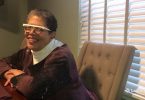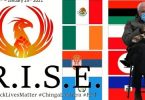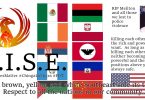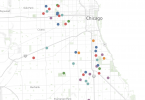University of Chicago offers $1 million for best idea to stem youth violence
More than suicide or heart disease, HIV or unintentional injuries, homicide has claimed the lives of more young African-American males than anything else.
In fact, it has outpaced the nine other leading causes of death combined, according to recent federal data. And Chicago has a higher percentage of young homicide victims than the national average.
In an effort to change that narrative, the University of Chicago Crime Lab has teamed up with the MacArthur Foundation and Get In Chicago to offer up to $1 million for the best idea or ideas to combat youth violence.
“This is not an intractable problem, but we have not made enough progress,” said Roseanna Ander, executive director of the University of Chicago Crime Lab and Urban Education Lab.
Organizers of the design competition said they are looking for imaginative solutions to the complex issue. The goal is to improve life outcomes of the young people who walk the city’s streets, attend its schools and play in its parks.
The deadline to submit plans is fast approaching. All letters of interest have to be in by Monday, after which a limited number of applicants will be asked to file full proposals. The awards will be announced in late May.
Plans should focus on Chicago youths ages 13 to 18. The hope, Ander said, is that researchers can use the data collected in tandem with other studies to tease out the common elements of effective programs, whether they be increasing school engagement or understanding the role of a positive adult in a young person’s life.
“We really need to have a variety of approaches that meet different sets of needs,” Ander said. “No one of them is going to be the slam-dunk, but hopefully, collectively, there will be a portfolio of strategies that can help make the quantum leap we need to make, not just in Chicago but in lots of other cities that are struggling mightily with this problem.”
The Crime Lab launched a similar challenge in 2009, which funded the community group Youth Guidance’s Becoming a Man project. President Barack Obama last year rolled out the My Brother’s Keeper initiative, which was modeled after the Chicago school-based counseling and mentoring program.
Although this year’s winning proposal could be up and running in Chicago as early as this summer, the objective is to reach beyond the city’s borders, said Maurice Classen, program officer at the MacArthur Foundation.
“If you look at (Becoming a Man), it ended up several years after the design competition in the White House,” he said. “That would be the ideal in terms of impacting anti-violence programming across the country. That would be the dream.”







